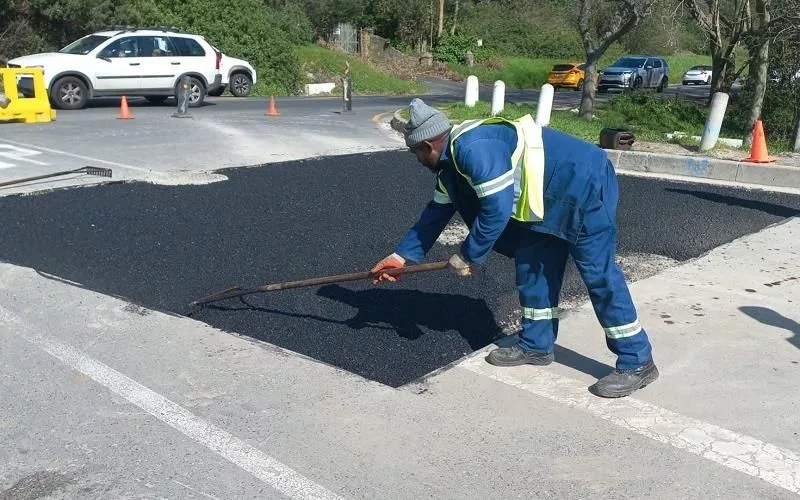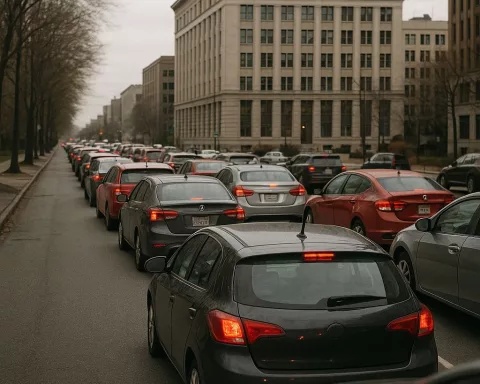Cape Town has set aside R55 million to refurbish its water infrastructure, aiming to improve the efficiency of its services and speed up restorations. The city is using both internal and external resources to handle the increased workload and minimize disruptions to residents. The goal is to learn from the ongoing restoration process to make future reinstatements more streamlined, and the city is doubling annual water pipe replacements to 50km to ensure sustainable development and access to quality water and infrastructure for its residents.
Cape Town has dedicated R55 million this fiscal year to refurbish its water infrastructure. This investment is expected to accelerate restorations and improve the overall efficiency of the city’s services. The city is utilizing both internal and external resources to handle the increased workload and hiring external service providers to minimize disruptions for residents. The city aims to learn from the ongoing restoration process to make future reinstatements more streamlined.
In an age of constant environmental shifts, Cape Town has made an unprecedented pledge to refurbish its water infrastructure. The city administration has dedicated a remarkable R55 million this fiscal year to expedite the process of restoring trenches post the indispensable repairs to the water system. This allocation is a testament to Cape Town’s dedication to eco-friendly infrastructure and underlines its commitment to its residents.
Emphasis on Speedy Water Infrastructure Restoration
The city’s commitment to the swift restoration of its water infrastructure is not a recent development. During the previous fiscal year, the Water and Sanitation Directorate allocated more than R33 million specifically for restorations. Additionally, the Urban Mobility Directorate supported more work in areas including the City Centre, South Peninsula, Constantia, and Pelican Park, though these efforts are not included in the aforementioned figure.
Now, the city is taking enormous strides to improve its service delivery. The budget for restorations for 2024/2025 has seen a significant increase to R55 million. This funding boost is expected to accelerate restorations while also improving the overall efficiency of the city’s services.
The Mammoth Task of Water Infrastructure Restoration
The city’s venture of replacing and maintaining water pipes is unparalleled in terms of its magnitude. The pace of the work has resulted in a higher demand for restorations after the completion of the work. A multi-faceted strategy that utilizes both internal and external resources has been developed to handle this increased workload.
As per the July 2024 statistics from the Water and Sanitation Directorate, approximately 3,700 trench restorations are in the pipeline. These include road, sidewalk, meter, and driveway restorations. The scale of this task highlights the city’s commitment to the restoration process, aiming to ensure a seamless transition for all parties involved.
Furthermore, the city is hiring external service providers to meet the rising demands for immediate restorations. This measure is designed to minimize disruptions for residents, maintain traffic flow and mobility. In addition, the Urban Mobility Directorate is assisting on major mobility roads to avoid any hindrance to transportation.
Execution and Future Plans
Efficiency is a priority in Cape Town’s restoration efforts. The city aims to learn from the ongoing restoration process to make future reinstatements more streamlined. As Cape Town progresses, it continuously enhances its ability to adapt and deliver results promptly and effectively.
In an appreciative gesture, Councillor Zahid Badroodien, the City’s Mayoral Committee Member for Water and Sanitation, thanked the residents for their patience during these challenging times. “We are making multi-billion rand investments to proactively replace water pipes and upgrade the overall water network,” he said.
Taking a proactive stance, the city has decided to double the annual water pipe replacements to 50km. This investment is a testament to Cape Town’s dedication to its residents, assuring them access to quality water and infrastructure.
Through its allocation of R55 million for trench reinstatement following water infrastructure repairs, Cape Town is demonstrating a commitment to sustainable development and the well-being of its residents. With this strategic plan, the city is not only preparing for the present but also paving the way for a brighter, more sustainable future.
1. What is the purpose of Cape Town’s R55 million pledge?
Cape Town’s R55 million pledge is dedicated to refurbishing its water infrastructure, aiming to improve the efficiency of its services and speed up restorations.
2. How is Cape Town handling the increased workload of restoring its water infrastructure?
Cape Town is utilizing both internal and external resources to handle the increased workload, and hiring external service providers to minimize disruptions for residents.
3. What is the goal of Cape Town’s restoration process?
The goal of Cape Town’s ongoing restoration process is to make future reinstatements more streamlined, with an emphasis on efficiency.
4. How many trench restorations are currently in the pipeline according to July 2024 statistics from the Water and Sanitation Directorate?
Approximately 3,700 trench restorations are currently in the pipeline, including road, sidewalk, meter, and driveway restorations.
5. What is Cape Town doing to ensure sustainable development and access to quality water and infrastructure for its residents?
Cape Town is doubling annual water pipe replacements to 50km to ensure sustainable development and access to quality water and infrastructure for its residents.
6. What is the significance of Cape Town’s commitment to refurbishing its water infrastructure?
Cape Town’s commitment to refurbishing its water infrastructure is a testament to its dedication to sustainable development and the well-being of its residents, paving the way for a brighter, more sustainable future.











